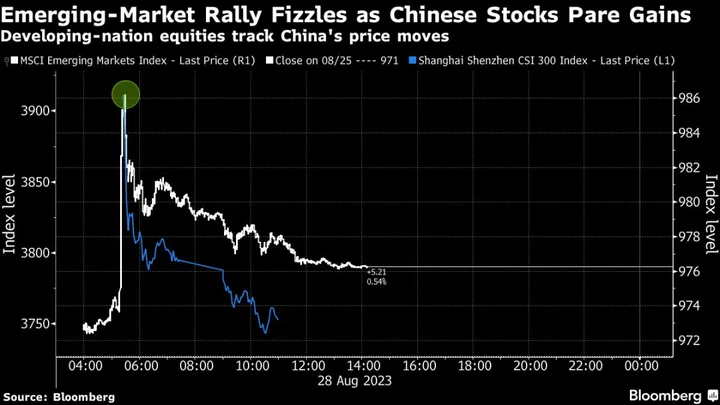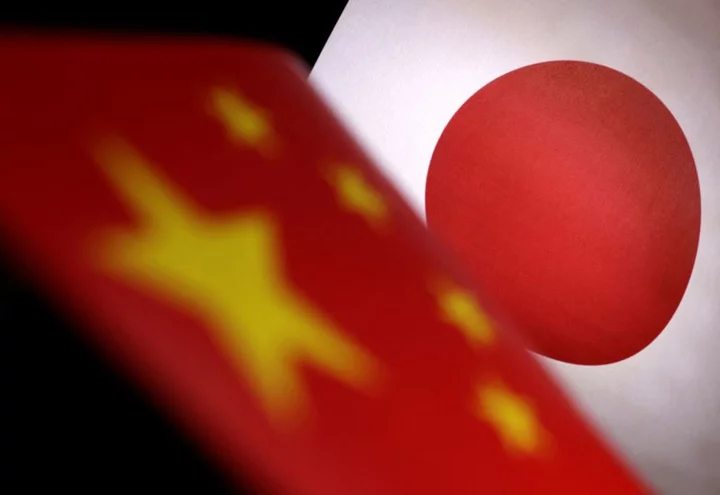A rally in emerging markets faded as doubts over China’s commitment to revive its faltering economy and confusion over the US Federal Reserve’s next steps kept sentiment in check.
MSCI Inc.’s gauge of developing-nation equities surged as much as 1.6% before paring most of its early gains on Monday. The price action reflected moves in Chinese stocks after Beijing’s measures to reinvigorate the market, including a cut in a levy on stock trades, failed to sustain a rally.
Most developing currencies were lower, led by the Thai baht and Brazilian real as the Chinese yuan gave up its morning gain to weaken versus the greenback. The dollar held a six-week advance after Federal Reserve Chair Jerome Powell said on Friday that the central bank is ready to tighten — if needed — to tame inflation. Investors will need to return to parsing upcoming economic data to get a better grip on the outlook on US policy.
“The Chinese market may still look like falling knives for those requiring somewhat more comfort on policy commitment,” said Vishnu Varathan, executive director and head of economics and strategy at Mizuho Bank Ltd. in Singapore. “Add to that a Fed that is a little more restrained on uncertainty, but necessarily a long way off a proper pivot.”
After opening 5.5% higher in China, the CSI 300 Index of mainland stocks pared its advance to close with a gain of 1.2%. Foreign funds accelerated their selling through the day, poised to take this month’s outflows to the biggest on record. Authorities asked some mutual funds to avoid selling equities on a net basis on Monday, people familiar with the matter said.
Global investors have little confidence that China will succeed in shoring up its financial markets, predicting that mounting economic stress will drive the yuan’s offshore exchange rate to a historic low of 7.6 per dollar before the end of the year. The offshore yuan was down 0.1% at 7.3 on Monday.
Concerns are also growing over China’s property crisis. China Evergrande Group delayed key votes on its offshore-debt restructuring plan just hours before they were to occur Monday, adding to uncertainty in a protracted process to finalize one of the country’s biggest restructurings.
Even with developing-nation stocks on course for their worst month in almost a year, hedge funds’ bullish bets in emerging-market equity futures have risen to the highest since the gauge’s pandemic low three years ago. While it’s difficult to tell if such bets on futures are outright longs or hedges for bearish wagers, the increase at the very least signals that funds want to limit their negativity about emerging markets.
In Turkey, banking stocks were among the biggest gainers, thanks to a steep rally in Isbank after the nation’s biggest listed bank by assets outlined plans to reorganize its units to boost efficiency.
The Mexican peso was the top performer among developing peers after the country posted a lower-than-expected trade deficit in July.
Elsewhere, trading was generally thin with a public holiday in the UK contributing to reduced volumes.
(Adds Brazilian real’s performance in third paragraph, Mexican peso’s in 10th.)









